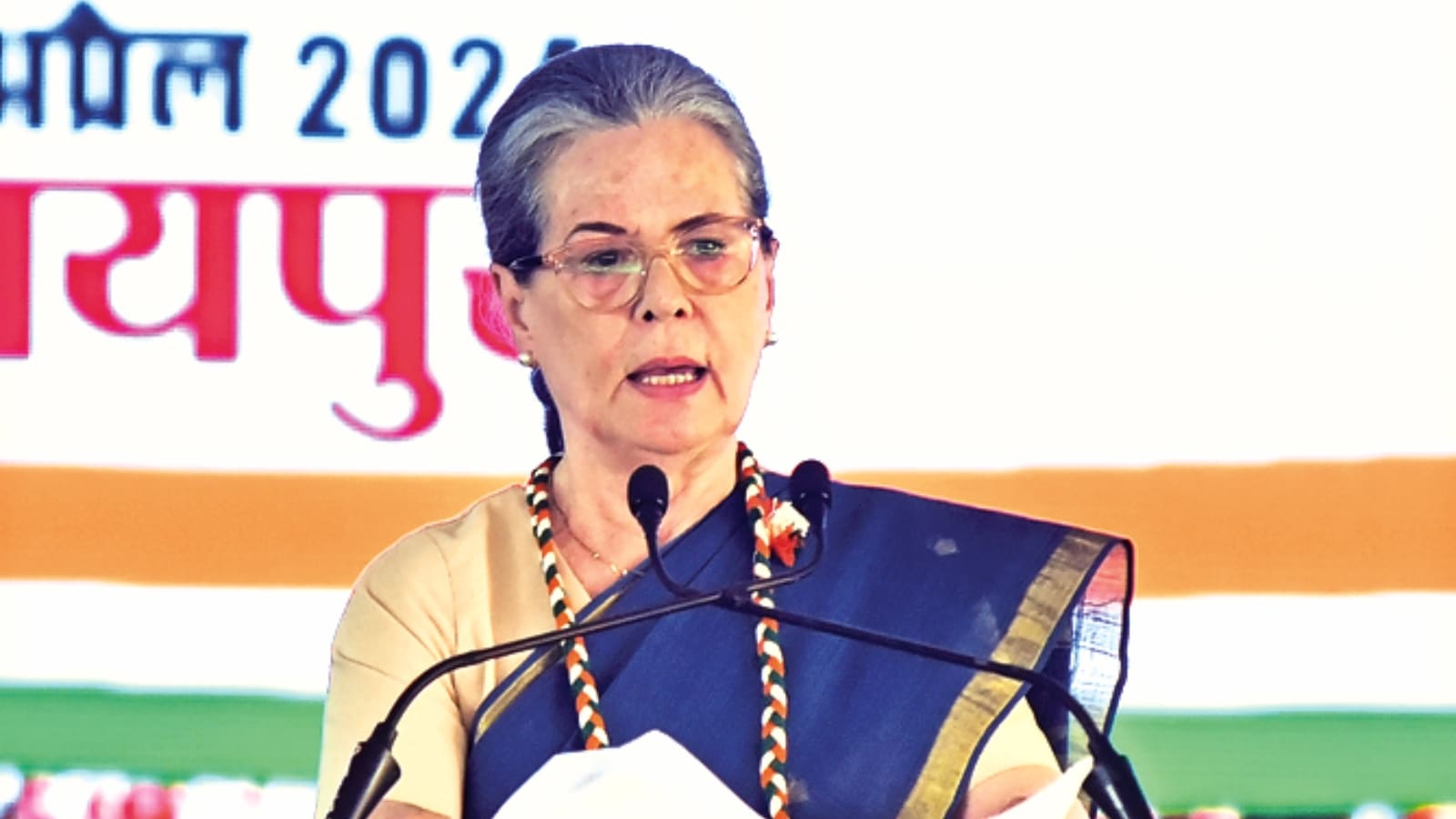 |
|
Sonia Gandhi's address to the Congress Working Committee (CWC) meeting in Belagavi, Karnataka, served as a strong condemnation of the Bharatiya Janata Party (BJP) government and its alleged undermining of Mahatma Gandhi's legacy. Her message, read out in her absence due to travel constraints, painted a stark picture of a deliberate attempt to erode the principles and ideals that Gandhi championed during India's struggle for independence. Gandhi directly accused the BJP and its ideological forebears, notably the Rashtriya Swayamsevak Sangh (RSS), of creating a hostile environment that ultimately contributed to Gandhi's assassination. She emphasized that these organizations, far from participating in the freedom movement, actively opposed Gandhi's philosophies and celebrated those responsible for his death, a deeply offensive assertion meant to resonate with Congress party members and the wider public.
The choice of Belagavi as the location for the CWC meeting was itself symbolic. The meeting took place exactly a century after the 39th session of the Indian National Congress was held in the same city, a period that witnessed Mahatma Gandhi’s ascension to the presidency of the party, marking a pivotal moment in both Congress's history and the Indian independence movement. Sonia Gandhi strategically used this historical context to underscore the BJP's actions as an affront to not only Gandhi's legacy but also the very foundations of the Congress party and the nation's history. By highlighting the historical significance of the location and the timing of the meeting, she subtly reinforced her message and aimed to galvanize support within her party.
Gandhi's statement is not merely a retrospective condemnation; it's a rallying cry for action. She explicitly called for a resolute and comprehensive fight against the forces she believes are threatening Gandhian values. This wasn't a passive criticism; it was a direct challenge to the BJP's dominance and a call for the Congress party to actively resist what she perceives as a systematic dismantling of Gandhi's ideals. She emphasized the need for the Congress to strengthen its organization and confront these challenges with renewed vigor and purpose. This assertive stance suggests a shift towards a more confrontational approach within the Congress, indicating a willingness to engage in a direct political battle against the ruling BJP.
The accusations leveled by Sonia Gandhi are likely to exacerbate the already tense political climate in India. The BJP and RSS are likely to vehemently reject her claims, potentially leading to a protracted and heated political debate. The accusation of glorifying Gandhi's assassins is a particularly sensitive charge, likely to be met with swift and strong denials. This statement is poised to intensify the ongoing ideological clash between the Congress, representing a more secular and inclusive vision of India, and the BJP, which is often perceived as a more Hindu-nationalist party. The ensuing discourse could have significant implications for the upcoming elections and the broader political landscape of India.
The strategic implications of Sonia Gandhi's statement are significant. It is a calculated attempt to mobilize support for the Congress party, leveraging the enduring respect and admiration that Mahatma Gandhi commands within India. By framing the BJP's actions as an attack on a revered national icon, Gandhi attempts to portray the ruling party as not only politically opposed but also morally deficient. This strategy seeks to galvanize both the traditional Congress base and a wider segment of the Indian population who hold Gandhi in high regard. The success of this strategy will depend on how effectively the Congress party can translate this narrative into concrete political gains.
However, the impact of Gandhi’s accusations might also depend on the broader political context and the public's reception. While Mahatma Gandhi remains a revered figure, there are sections of society who may not view the BJP's ideology as inherently anti-Gandhi. The effectiveness of this political strategy also hinges on the Congress's ability to present a coherent and compelling alternative vision for India, a vision that resonates with the hopes and aspirations of the diverse Indian populace. Ultimately, whether this statement will become a significant turning point or remain a rhetorical flourish will be determined by the unfolding political developments in India.
